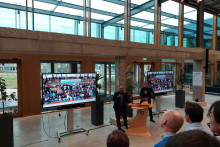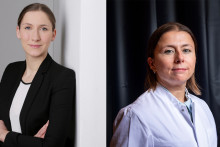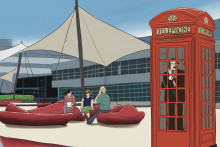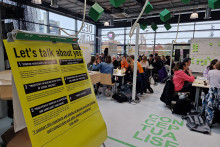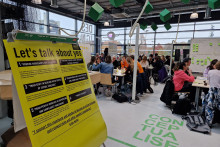What was the reason to create this manifest?
‘It’s something we’ve been working on for more than a year. Every month, the study associations get together to discuss a variety of topics. The topic of internationalization became increasingly important. We all saw the need for it, but we also saw the need for more guidance from the university.’
What obstacles do the study associations run into?
‘The major issue is speakers of companies that only want to talk in Dutch during events the associations organize. We see a lot of resistance from their side, which is a real shame. From experience, we know that international students are especially interested in events that are a bit more serious than your average afternoon drink.’
‘There’s also a sense of responsibility on our own side, regarding the language we use to communicate. Like in the association rooms, it’s important that everyone feels welcome and involved. And in our written communication to our members, it’s English text first, Dutch below.’
You also ask a lot of effort from the university. Aren’t you being a bit overbearing?
‘We don’t think so. Almost every member of a study association does so much for the university, so we strongly feel we can ask for something in return. We mostly expect the university to make efforts regarding clear communication. Be it in having a language policy – which they are working on, or in things like offering language courses and better signage on campus. You have to make efforts on all fronts, to truly show you are an international university.’
This is a clear signal?
‘Yes, we believe that the entire executive board appreciates the efforts we made. And we hope that they take our message in account in working on the UT wide language policy. In a sense, the study associations are leading by example regarding internationalization. We already have three policy documents.’



